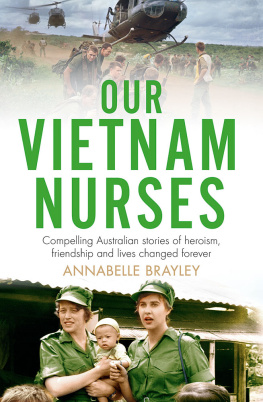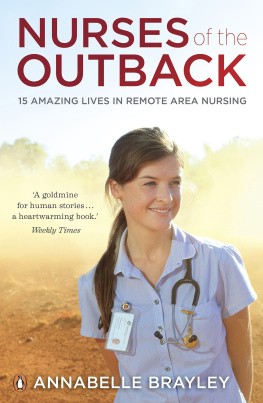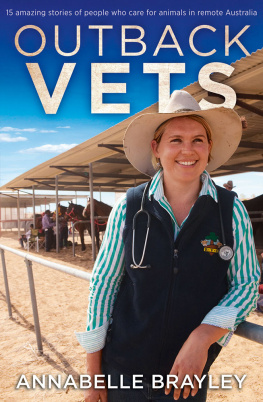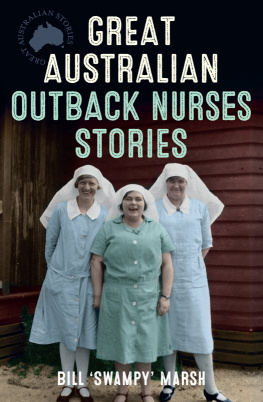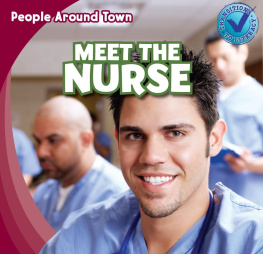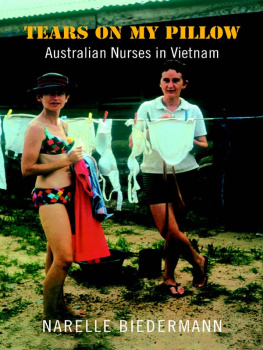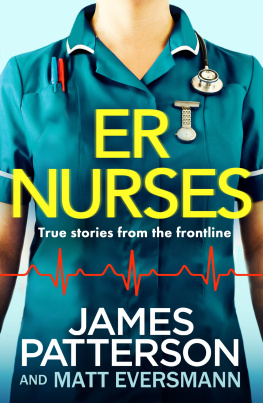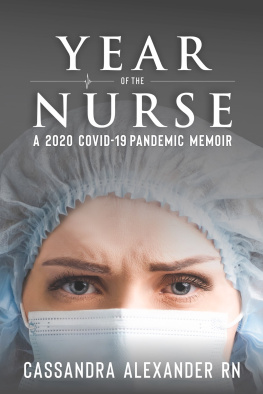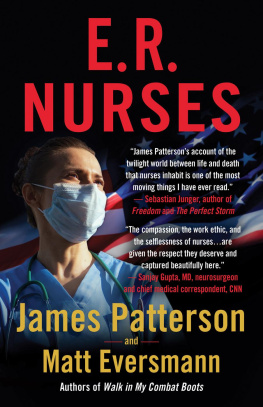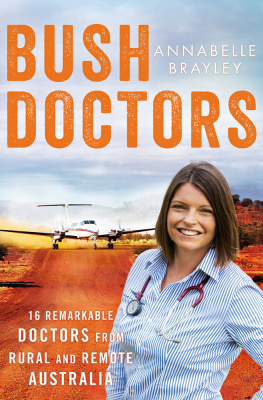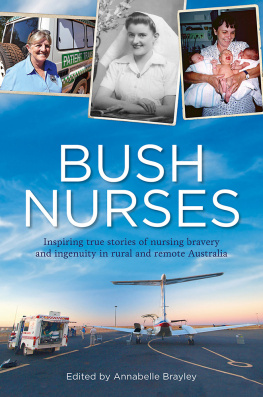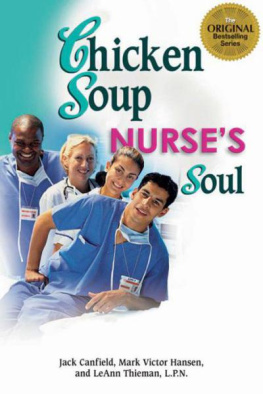Being a nurse always requires a cool head, a steady hand and an open heart. But if you're working in a war zone, the challenges are much harder. When Australia joined the Vietnam War, civilian and military nurses were there to save lives and comfort the wounded. With spirit and good humour, they worked hard and held strong, even though most of them were completely unprepared for the war before they landed in the middle of it.
Working incredibly long hours and surrounded by chaos and turmoil, these brave nurses and medics were integral to our war effort. These fifteen stories show a side to the Vietnam War that has received little recognition but played an important part in shaping Australia's presence in the war. From flying with critically wounded Australian soldiers out of turbulent war zones, to being held at gunpoint, the compassion, courage and grace under fire in Our Vietnam Nurses will inspire and astound.
Acknowledgements
First and foremost, Id like to thank everyone who entrusted me with their memories of nursing in Vietnam, including those not included in these pages. It was such an honour to meet you and a privilege to write your stories.
A book like this was never going to evolve without assistance, so thank you to everyone who rallied around it along the way. Whether it was with a bed for the night, an introduction, a quote for a story, or a room for an interview (thank you, Virgin Airlines), it all helped.
In particular, thank you Jan McCarthy, Trish Ferguson, Gaynor Tilley, Michael Naughton, Susan Sherson, Philip Badcock, John Heslewood, Geoff Jones, Richard de Crespigny and Robey Miller for answering a seemingly endless list of questions clarifying a broad range of details.
Needless to say, selfies were unheard of during the Vietnam War. Fortunately Denis Gibbons, a war correspondent who spent a lot of time in Vietnam between 1965 and 1970, took many of the photos included in these pages. Special thanks to his son, Shaun Gibbons, for giving me permission to use them.
Then there are the practicalities of gathering and writing the stories. Special thanks to my travel buddy Megan McNicholl who shared the literal journey. Also special thanks to my nursing buddy Judy Treloar who yet again responded almost instantly to my email requests to please read this and tell me if it makes sense and to my daughter Chloe Miller for giving me the next gens perspective. Thanks too to Bill and Mickey McKellar for their independent view, and to Julie Ford for her splendid red pen.
Thank you, Andrea McNamara, for recognising the possibilities in me as a writer back in 2012. Thank you too for your encouragement and unfailingly calm direction as I began this particular journey. Every DQ should have a deadline.
Thanks to Cate Blake for picking up the baton so smoothly, to Andrea Davison for orchestrating the editorial aspects of Our Vietnam Nurses and especially to Sonja Heijn for her excellent suggestions, warmth, good humour and enthusiasm as we edited the stories into their final drafts. Thanks also to John Canty and the design team, and everyone at Penguin who helped bring this book to fruition.
Heart and hugs to Ian and our immediate and extended family who continue to support and encourage me unconditionally.
Lastly, thank you to the person who first asked me if I knew any Vietnam nurses. Im sorry I cant remember who you are, but Im so very glad that you did...
OUTBACK VETS
The stakes are high for the smart and spirited vets charged with caring for Australias rural livestock, wildlife and beloved family pets. Those who call the outback home often depend on animals for their wellbeing and, in many cases, their livelihood.
In far south-west Queensland, Rachel Wilson and Will Nason vet all the horses at the famous Birdsville Races; in the Victorian High Country, Dave Halls own life-threatening car accident fired his ambition to make a difference; and in her mixed practice in north-west New South Wales, lone vet Mary-Jane Stutsel has had seven days off-call in twenty years. Among others, we also meet Jan Allen, who works with camp dogs in remote Indigenous communities in the Top End, and adventurous Rick Fenny in the vast Pilbara, who cared for the regions beloved nomad kelpie, Red Dog.
Outback Vets is a walk on Australias wild side, from the glistening coast to the dusty desert. Get to know these hard-working animal lovers as they ride, drive and fly across some of the most remote regions of Australia, rescuing and treating creatures great and small.
Funny, sad and hair-raising.
QUEENSLAND COUNTRY LIFE
Dedicated to every Australian
who nursed in Vietnam 19641972.
Shes a nurse in Vietnam
Shes all of them,
Shes one of us,
Born beneath,
The Southern Cross,
Side by side,
We say with pride,
She is all of them,
She is one of us.
He is one of us
They are one of us.
Spirit of the Anzacs
by Lee Kernaghan, Garth Porter and Colin Buchanan
Foreword
The Honourable Dame Quentin Bryce AD CVO
I have always had enormous respect, admiration and affection for nurses. I envy their competence and confidence. They always seem to know how to take charge and what to do.
As a little girl in central western Queensland I observed how important nurses were in our community and the leadership hospital matrons and sisters gave. They are highly valued wherever they serve. I have enjoyed opportunities to acknowledge the contribution of Australian nurses and the diversity of their careers on special occasions such as International Nurses Day.
I am inspired by the dedication and commitment to caring for others that I continue to see in our largest city hospitals, in regional centres and in our smallest remote communities. Our nurses have their feet firmly on the ground and their eyes perfectly focused on the subject at hand. My sisters Diane and Revelyn, who had enriching careers in nursing, have had a powerful influence on my life.
It has been a particular privilege and pleasure to read the stories in this engaging book. They have emerged from the memories of some of the Australians who nursed in Vietnam during the years of our participation in the Vietnam War.
Responding to an invitation from the government of South Vietnam to the Australian government of the day and under the auspice of the Southeast Asia Treaty Organisation (SEATO), more than 200 civilian nurses from major hospitals all over Australia answered the call to join the surgical teams that went to South Vietnam to share their expertise with the civilian population around Long Xuyen and Bien Hoa.

